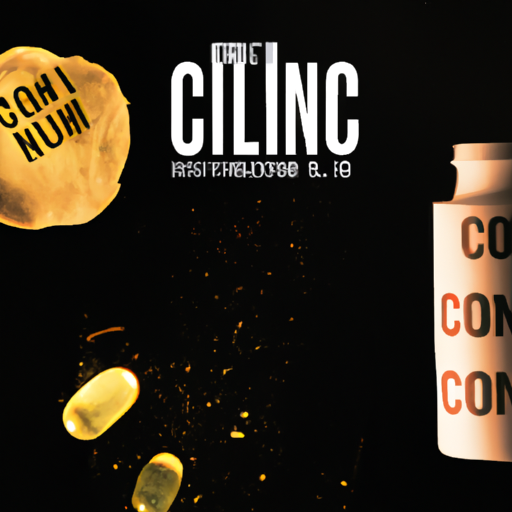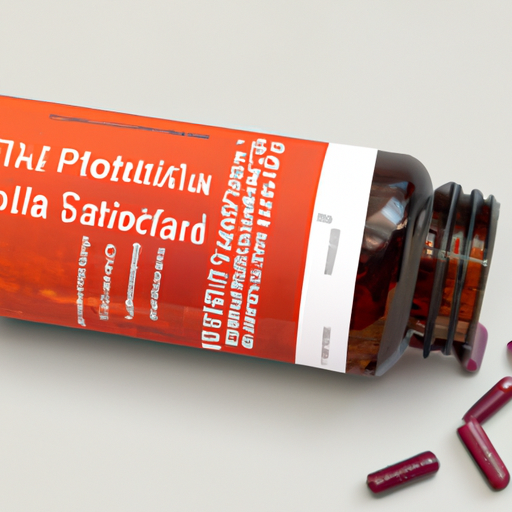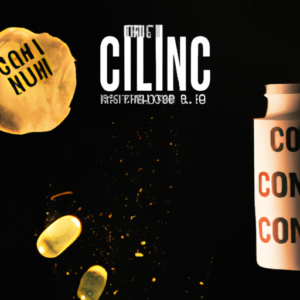In this article, we will discuss the risks associated with taking supplements. You will learn about the potential side effects and dangers of these products. We will explore how certain supplements may interact with medications and the importance of understanding the ingredients in the supplements you consume. By the end of this article, you will have a better understanding of the potential risks involved in taking supplements and be able to make informed decisions about your health. Taking supplements can be a popular choice for individuals looking to improve their health or address specific concerns. The supplement industry is a booming market, with numerous options available to consumers. However, it is important to consider the potential risks associated with supplement use before incorporating them into your daily routine. This article will outline some of the common risks and concerns related to taking supplements, providing you with vital information to make informed decisions about your health.
1. Lack of regulation
Insufficient testing and quality control
One of the primary concerns when it comes to supplements is the lack of regulation in the industry. Unlike medications, which undergo rigorous testing and evaluation by regulatory bodies, supplements are not subject to the same level of scrutiny. This means that there may be insufficient testing and quality control measures in place, leading to potential inconsistencies in the composition and effectiveness of the supplements you are consuming.
False advertising and mislabeling
Another issue related to the lack of regulation is the potential for false advertising and mislabeling of supplements. Without stringent monitoring, some companies may make exaggerated claims about the benefits of their products or may inaccurately label the ingredients and dosages. This can be particularly concerning for individuals who rely on accurate information to manage specific health conditions or to avoid potential allergies or interactions with medications.
2. Potential for harmful ingredients
Contamination with toxins or heavy metals
The presence of harmful ingredients is another risk associated with supplements. Because of the lack of regulation, there is a possibility that supplements may be contaminated with toxins or heavy metals. These contaminants can pose a serious threat to your health, particularly if you consume the supplements on a regular basis or at high doses. Certain heavy metals, such as lead or mercury, have been linked to adverse health effects, including neurological issues and organ damage.
Presence of banned or illegal substances
In some cases, supplements may even contain banned or illegal substances, which can have severe consequences on your health. Despite regulations prohibiting the inclusion of these substances in supplements, the lack of oversight and enforcement makes it difficult to identify and remove such products from the market. Consuming supplements that contain banned or illegal substances not only puts your health at risk but also exposes you to potential legal repercussions.

This image is property of images.unsplash.com.
3. Adverse interactions with medications
Potential interference with prescribed drugs
When taking supplements alongside prescribed medications, there is a risk of adverse interactions. Some supplements may interfere with the effectiveness or metabolism of certain medications, reducing their benefits or potentially even exacerbating their side effects. It is important to note that even natural supplements can interact with medications, and it is essential to consult with your healthcare professional to ensure that your supplement use is safe and appropriate.
Enhanced side effects or reduced effectiveness
In addition to potential interactions, taking supplements may enhance the side effects of certain medications or reduce their effectiveness. This can be particularly problematic for individuals with chronic health conditions who rely on specific medications to manage their symptoms. The use of supplements without proper consideration of these interactions can lead to worsening of existing conditions or the need for adjustments in prescribed medications.
4. Allergic reactions and sensitivities
Ingredients causing allergic responses
Supplements contain a variety of ingredients, and it is possible to have allergic reactions to some of these components. Allergic responses can range from mild symptoms, such as itching or skin rashes, to severe reactions like anaphylaxis, a potentially life-threatening condition. It is crucial to carefully read the ingredient labels of supplements and be aware of any known allergies or sensitivities to ensure that you do not inadvertently expose yourself to substances that may trigger an allergic reaction.
Undeclared substances triggering sensitivities
In some cases, supplements may also contain undeclared substances, such as allergens or sensitizing agents. These substances may not be listed on the label, making it difficult for individuals with specific sensitivities or allergies to identify and avoid potential triggers. Undeclared substances can lead to unexpected allergic reactions or sensitivities, putting your health at risk.
This image is property of images.unsplash.com.
5. Overdosing and excessive intake
Misinterpretation of recommended dosages
Proper dosing is essential when taking supplements to ensure their safe and effective use. However, there is a risk of misinterpreting recommended dosages, which can lead to overdosing or excessive intake. Some individuals may mistakenly believe that taking higher doses will provide greater benefits, but this can actually be harmful. Exceeding recommended dosages can result in toxicity, potentially causing adverse effects on various systems in your body.
Accumulation of excessive vitamins or minerals
Certain supplements, particularly those containing vitamins or minerals, can accumulate in your body over time if consumed in excessive amounts. While these nutrients are essential for your health, excessive intake can lead to imbalances or toxicity. For example, consuming excessive amounts of fat-soluble vitamins like vitamin A or vitamin D can cause toxicity symptoms, as they are stored in your body and not easily excreted.
6. Negative effect on existing medical conditions
Aggravation of underlying health issues
Individuals with pre-existing medical conditions need to exercise caution when considering supplement use. Some supplements may exacerbate underlying health issues or interact negatively with prescribed medications for chronic diseases. For example, supplements that stimulate the central nervous system, like certain weight loss or energy-boosting supplements, may worsen symptoms in individuals with heart conditions, high blood pressure, or anxiety disorders.
Interference with chronic disease treatments
Supplements may also interfere with the effectiveness of treatments for chronic diseases. For instance, certain supplements may affect blood clotting or interfere with the absorption of medications used to manage diabetes or thyroid disorders. It is vital to seek guidance from your healthcare professional before incorporating supplements into your treatment plan to mitigate potential risks and optimize your overall health outcomes.
This image is property of images.unsplash.com.
7. Lack of scientific evidence and efficacy
Questionable claims without substantial research
A concern related to supplements is the lack of scientific evidence supporting their claims and efficacy. Some supplements may make bold promises about their benefits without sound research to back them up. It is essential to approach such claims with skepticism and rely on scientific studies and credible sources to evaluate the effectiveness and safety of supplements before incorporating them into your routine.
Inconsistent or inconclusive results
Even when there is some scientific research available, the results may be inconsistent or inconclusive. Different studies may yield contradictory findings, making it challenging to determine the true benefits and risks of a particular supplement. This highlights the need for further research and caution when considering the use of supplements as a means of improving your health.
8. Psychological dependence and unnecessary reliance
Perception of supplements as a cure-all
Due to marketing tactics and societal beliefs, some individuals may perceive supplements as a cure-all solution to their health concerns. This perception can lead to psychological dependence and unnecessary reliance on supplements, neglecting the importance of a well-rounded and balanced lifestyle. It is crucial to understand that supplements are not a substitute for a healthy diet, regular exercise, and other lifestyle habits necessary for overall well-being.
Disregard for healthy lifestyle habits
Relying solely on supplements while neglecting other healthy lifestyle habits can have detrimental effects on your health. While supplements may provide some benefits, they should be viewed as complementary to a healthy diet and lifestyle, rather than a replacement. It is important to maintain a nutritious diet, engage in regular physical activity, and prioritize sleep and stress management alongside supplement use for the best overall health outcomes.

9. Inadequate labeling and information
Insufficient instructions or warnings
The labeling of supplements can vary greatly, and some products may have insufficient instructions or warnings. Inadequate information can make it challenging to understand the proper usage, recommended dosages, and potential side effects of the supplements you are considering. This lack of clarity can increase the risk of improper use or unintentional harm.
Limited details on potential side effects
In addition to inadequate instructions, some supplements may have limited details on potential side effects. Understanding the possible adverse reactions is crucial for making informed decisions about the risks and benefits of supplement use. Lack of information can leave individuals unaware of potential risks or unprepared to recognize and address side effects if they occur.
Conclusion
Considering the potential risks associated with taking supplements is crucial before incorporating them into your daily routine. The lack of regulation, potential for harmful ingredients, adverse interactions with medications, allergic reactions and sensitivities, overdosing, negative effects on existing medical conditions, lack of scientific evidence, psychological dependence, and inadequate labeling and information are all factors to consider when evaluating supplement use.
To ensure your safety and optimize the effectiveness of your healthcare regimen, it is strongly recommended to consult with healthcare professionals who can provide personalized advice based on your individual health needs. They can help identify any potential risks or interactions and guide you in making informed decisions about the use of supplements. By prioritizing your well-being and considering all aspects of supplement use, you can make choices that align with your health goals and support your overall wellness journey.




